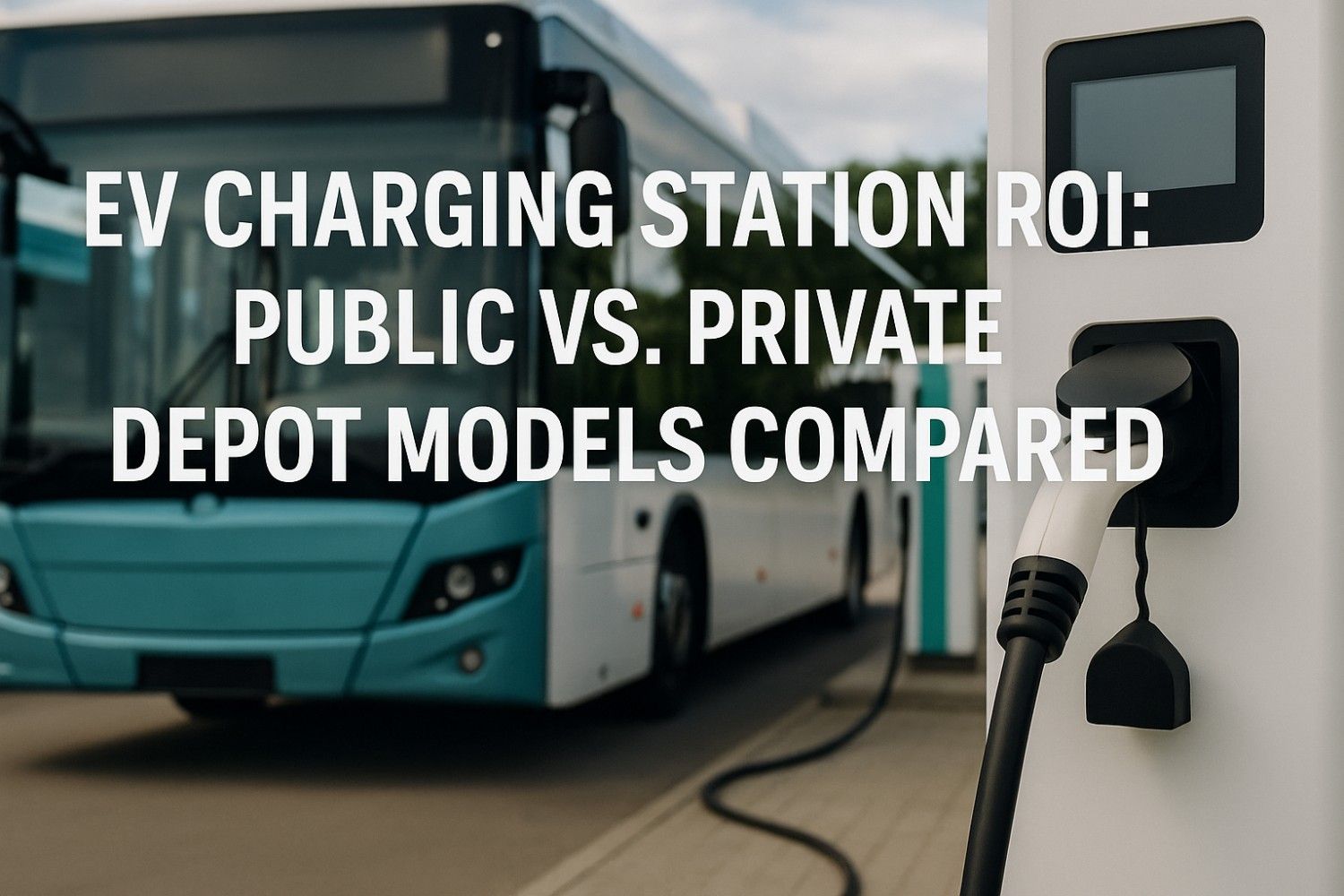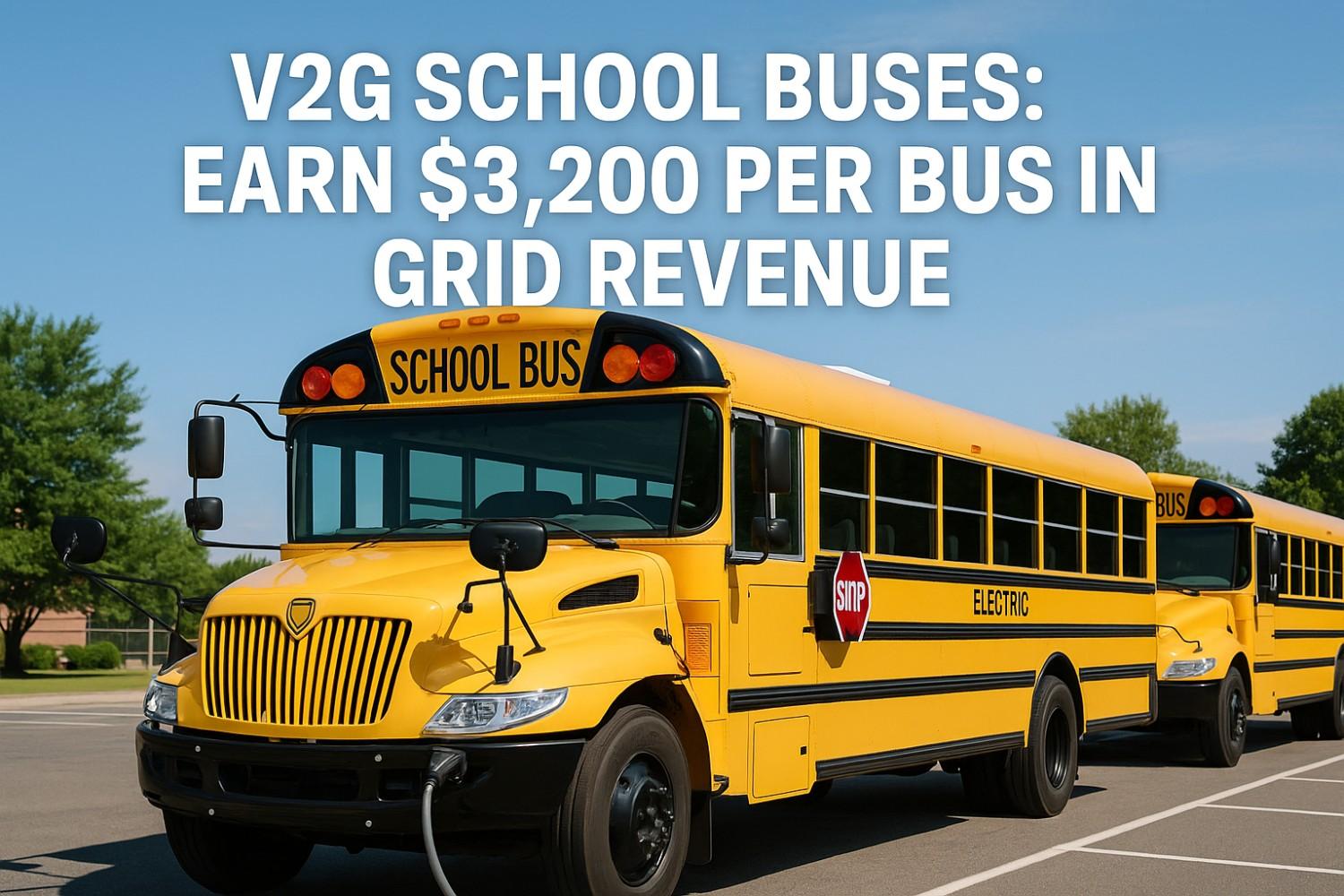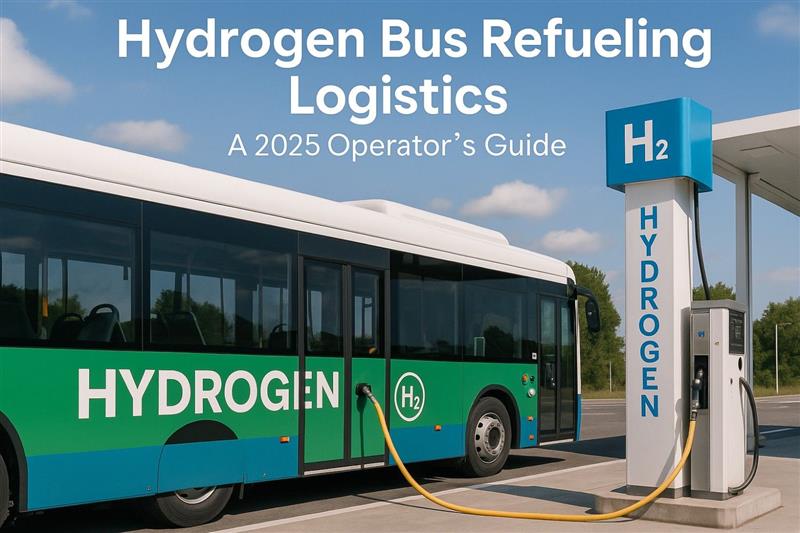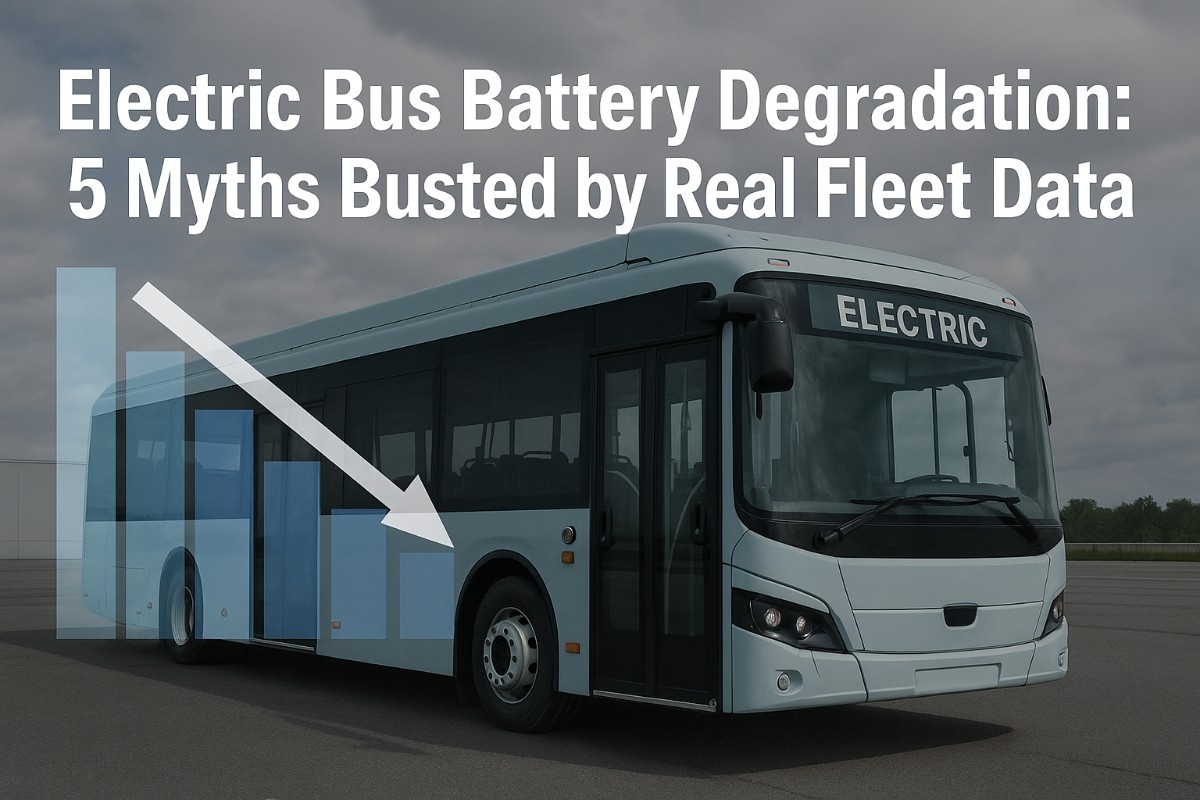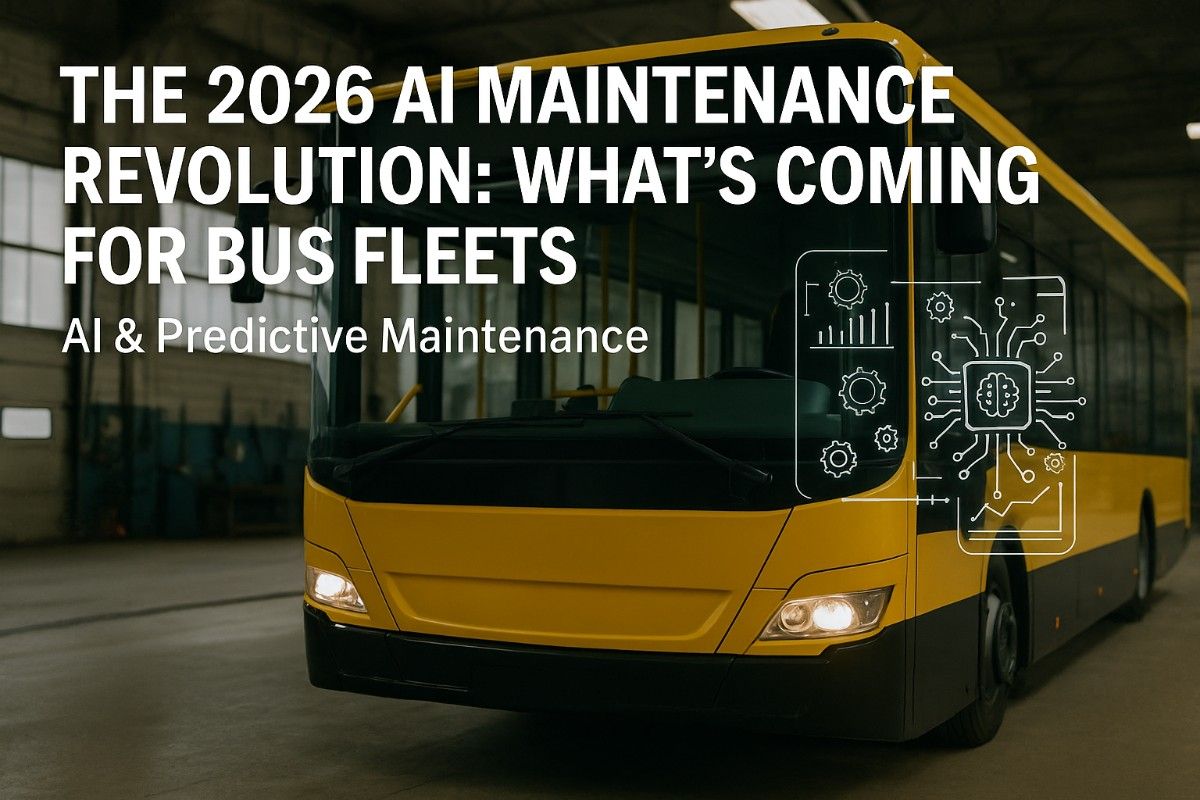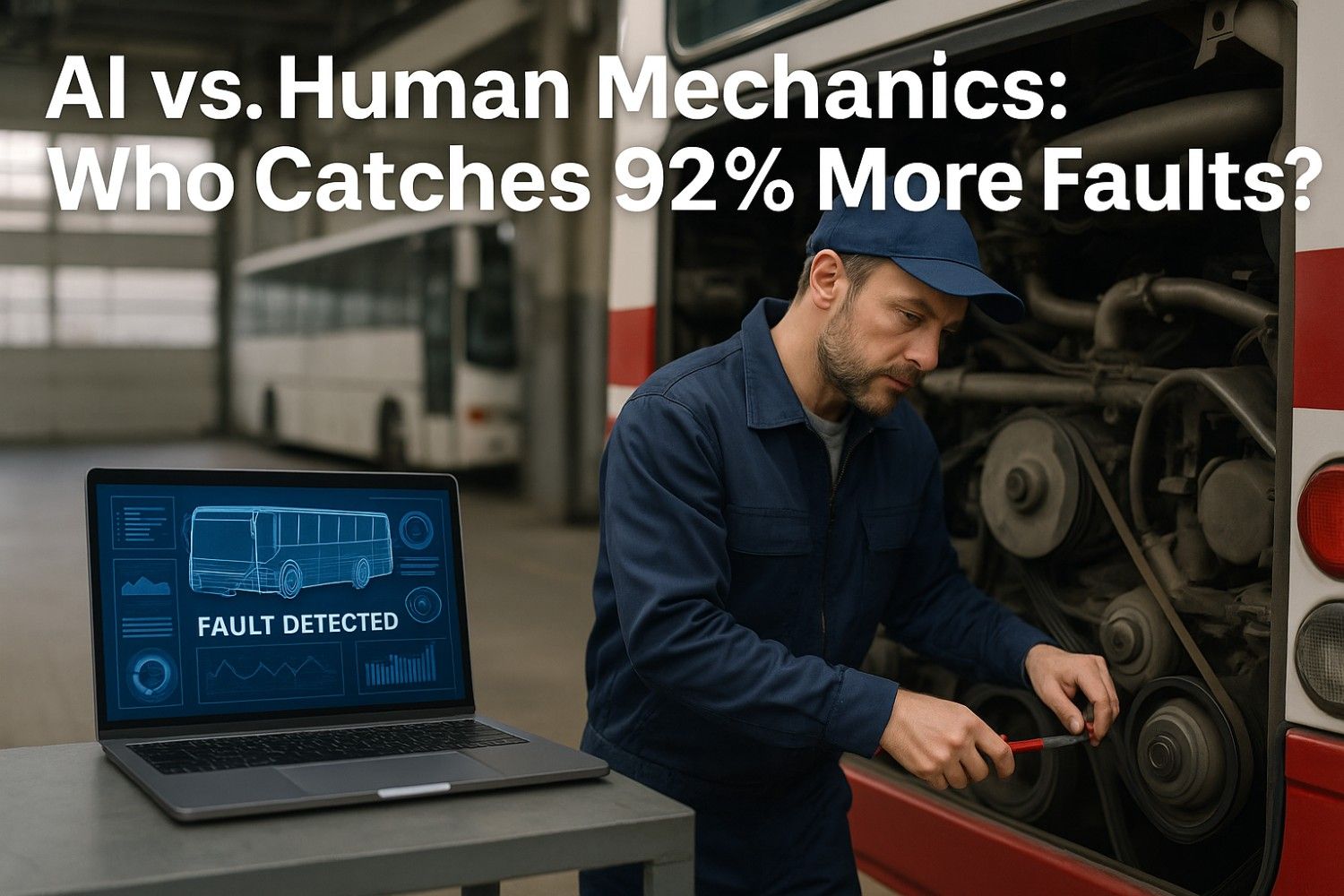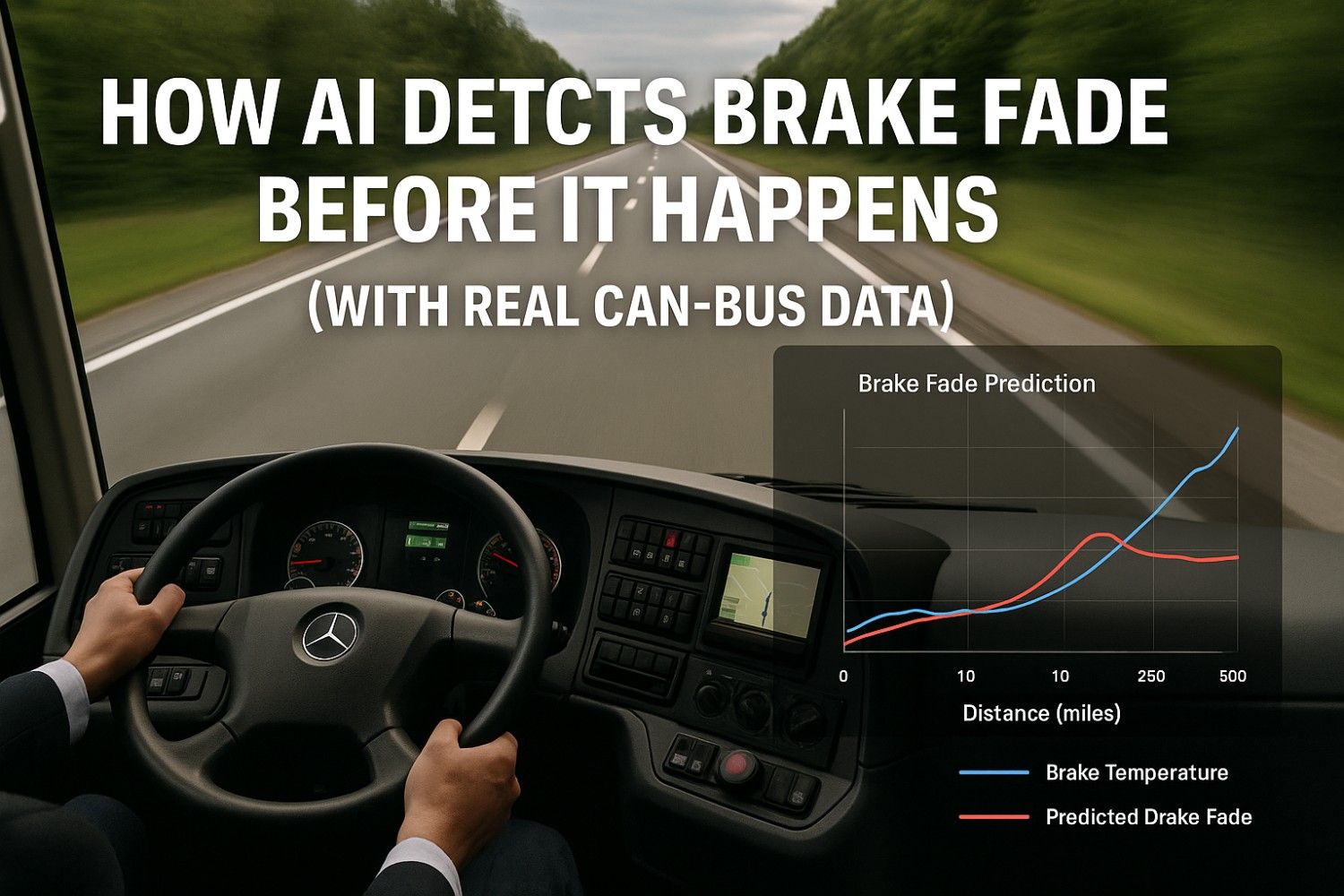The electric bus revolution is transforming American transportation faster than ever before. With federal funding pouring in through the Bipartisan Infrastructure Law's $5 billion Clean School Bus Program and cities nationwide committing to zero-emission fleets, 2025 has become a pivotal year for the industry. Manufacturing professionals are witnessing unprecedented demand for electric buses, advanced fleet management systems, and cutting-edge maintenance software solutions.
The U.S. electric bus market is experiencing explosive growth, with these seven manufacturers leading the charge through innovative battery technology, comprehensive fleet software solutions, and robust maintenance platforms that are revolutionizing how transit agencies manage their operations.
Market Leaders Driving Innovation
1. Blue Bird Corporation - The School Bus Authority
Headquartered in Fort Valley, Georgia, Blue Bird has been America's school bus leader since 1927. Their electric line-up centers around advanced battery systems with integrated fleet management capabilities that manufacturing professionals absolutely need to understand.
Their electric buses come standard with comprehensive CMMS tools that track everything from battery performance to brake system diagnostics. For manufacturing professionals managing large fleets, Blue Bird's route optimization algorithms and maintenance scheduling systems represent the cutting edge of fleet automation technology.
2. Thomas Built Buses - Proterra Partnership Powerhouse
As a subsidiary of Mercedes-Benz Group AG, Thomas Built Buses has revolutionized the market through their partnership with Proterra's battery technology. Their Saf-T-Liner C2 Jouley has already surpassed 1 million miles driven across North America.
Manufacturing professionals love their turnkey approach - they don't just sell buses, they provide complete charging infrastructure, maintenance software, and driver training programs. Their predictive analytics platform can forecast maintenance needs up to 6 months in advance, dramatically improving fleet efficiency.
3. New Flyer of America - Transit Innovation Leader
Part of NFI Group, New Flyer dominates the North American transit bus market with their comprehensive electric vehicle solutions. They're not just building buses - they're creating complete ecosystem solutions for modern fleet management.
Their charging solutions are designed to optimize vehicle uptime through intelligent energy management. For manufacturing professionals, their integrated telematics and CMMS tools provide unparalleled visibility into fleet performance, maintenance needs, and operational efficiency metrics.
4. BYD Motors Inc. - Global Scale, Local Impact
The Chinese automotive giant operates major U.S. facilities in Lancaster, California, and has secured some of the largest electric bus orders in American history, including 130 buses for Los Angeles Department of Transportation.
Their buses feature integrated fleet automation tools that manufacturing professionals need for large-scale operations. BYD's maintenance software includes predictive analytics for battery performance, route optimization algorithms, and compliance tracking systems that meet all federal requirements.
5. The Lion Electric Co. USA - All-Electric Specialists
This Canadian company with growing U.S. operations focuses exclusively on electric medium and heavy-duty vehicles. They've carved out a significant niche in both school and commercial bus markets through comprehensive service offerings.
Manufacturing professionals appreciate their all-electric focus and robust maintenance platforms. Their CMMS tools integrate seamlessly with existing fleet software, providing real-time diagnostic information, maintenance scheduling, and performance analytics that maximize vehicle uptime.
Ready to Optimize Your Fleet Operations?
Whether you're managing school buses, transit systems, or commercial fleets, the right fleet management software can transform your operations. Discover how advanced CMMS tools, predictive analytics, and telematics integration can maximize your fleet efficiency.
Getting Started Book a Demo6. GreenPower Motor Company - Sustainable Innovation
Based with manufacturing in West Virginia, GreenPower specializes in zero-emission vehicles with a strong focus on school bus applications. They've successfully delivered all-electric school buses to multiple West Virginia school districts.
Their commitment to domestic manufacturing resonates with procurement professionals seeking American-made solutions. GreenPower's maintenance software includes predictive analytics, route optimization, and compliance tracking features essential for modern fleet management.
7. REV Group Inc. - Specialty Vehicle Expertise
REV Group brings decades of specialty vehicle manufacturing experience to the electric bus market. Their expertise spans fire and emergency vehicles, commercial buses, and specialized transportation solutions.
Manufacturing professionals value their customer-centric approach and ability to customize vehicles for specific operational needs. Their buses come equipped with comprehensive CMMS tools, telematics integration, and predictive maintenance capabilities that optimize fleet efficiency and reduce operational costs.
Why Fleet Software Integration Matters
Modern electric buses aren't just vehicles - they're mobile data centers requiring sophisticated fleet management solutions. The manufacturers listed above understand that success in 2025 depends on seamless integration between vehicles and software platforms.
Manufacturing professionals need solutions that provide real-time diagnostic data, predictive maintenance alerts, route optimization, and compliance tracking. The best electric bus manufacturers now offer comprehensive CMMS tools that work alongside telematics systems to maximize vehicle uptime and minimize operational costs.
The Technology Revolution Behind Electric Buses
Battery technology has reached a tipping point where electric buses now offer lower total cost of ownership than diesel alternatives. Lithium iron phosphate (LFP) batteries have become the standard, offering improved safety, longer life cycles, and better performance in various weather conditions.
Manufacturing professionals should focus on manufacturers offering integrated telematics systems, advanced diagnostic capabilities, and comprehensive maintenance software. These features are no longer nice-to-have options - they're essential for efficient fleet operations in 2025.
Looking Ahead: Market Trends and Opportunities
The U.S. electric bus market is projected to experience rapid growth through 2030, driven by federal funding, state mandates, and the proven benefits of electric vehicle technology. Manufacturing professionals should prepare for increased demand for sophisticated fleet management solutions.
Key trends include enhanced route optimization algorithms, improved battery management systems, and more sophisticated predictive maintenance capabilities. The manufacturers leading this space understand that success requires both excellent hardware and comprehensive software solutions.
Conclusion
The electric bus revolution is here, and these seven manufacturers are leading the charge with innovative solutions that go far beyond just building vehicles. They're creating comprehensive ecosystems that include advanced fleet software, predictive maintenance tools, and sophisticated telematics integration.
For manufacturing professionals, the message is clear: success in the electric bus market requires partnering with manufacturers who understand that modern fleets need sophisticated software solutions, not just electric powertrains. The companies highlighted here represent the best combination of vehicle technology, software capabilities, and comprehensive support services available in 2025.
Transform Your Fleet Management Today
Join the electric revolution with advanced fleet management solutions designed for modern transportation needs. Experience the power of integrated CMMS tools, predictive analytics, and comprehensive maintenance software.
Getting Started Book a Demo
